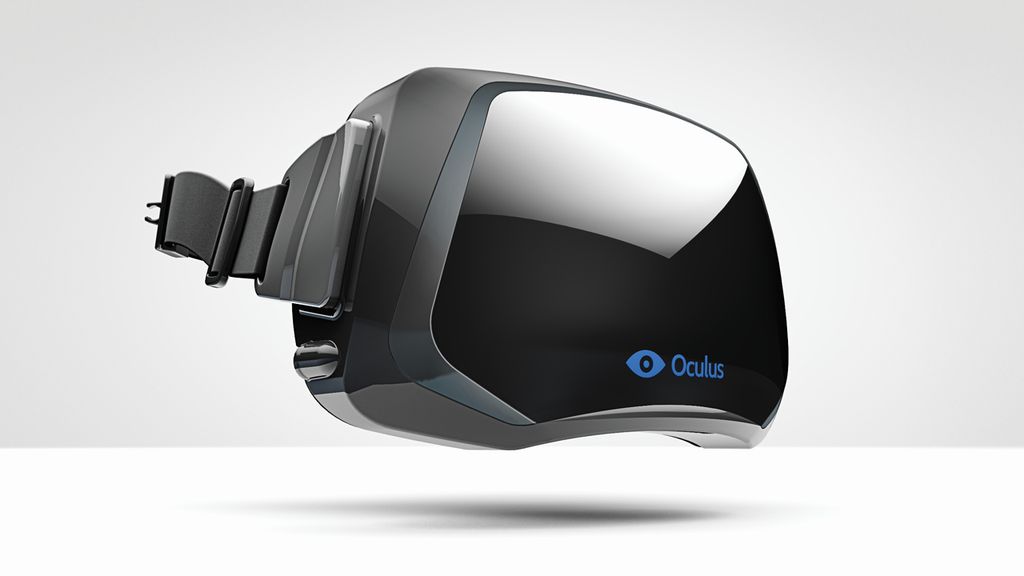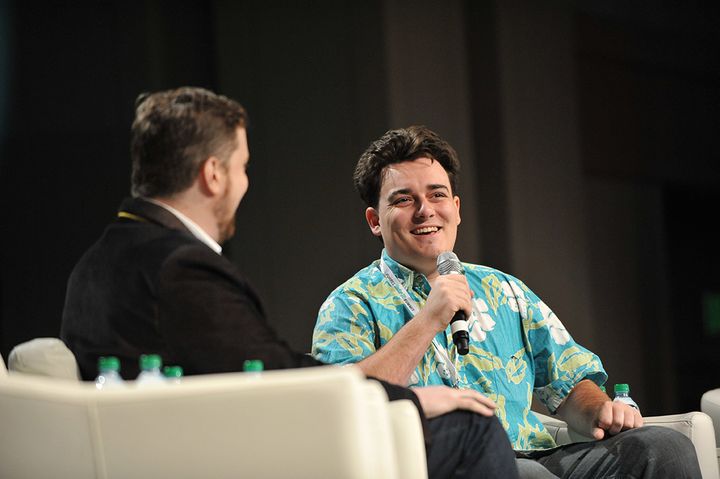
This October, Forbes will be hosting its second-annual Under 30 Summit in Philadelphia. A gathering of over 2000 of America's most important young entrepreneurs, this four-day event will include an incentive challenge for people looking to make a difference worldwide. Known as the Forbes Under 30 $1 Million Change the World Competition, this competition will award up to $1 million USD to social entrepreneurs under the age of 30 for ideas on how to make the world a better place.
Much like last year's Under 30 Summit, this year's event will feature panels, discussions, and mentorship programs from successful business leaders. And just like last year, it will also include TED-style talks from some of America's most important young entrepreneurs and game-changers. And of those that spoke at last year's summit, Palmer Luckey - the inventor of the Oculus Rift - was an especially large draw.
For those familiar with computing and gaming, the Oculus Rift needs no introduction. As a head-mounted virtual reality headset developed by Oculus VR, it is the device that single-handedly injected new life into the VR industry. Now, with the commercial model of their concept complete, the market for VR has exploded, with many major companies working to develop their own VR devices.
These include internet giant Google's Cardboard, HTC's Vive, and Sony's Project Morpheus, all of which are head-mounted VR displays similar to the Rift. In recent years, all of these companies have been scrambling to not only create their own devices, but to make sure they are commercially available in time to compete with the Rift - which will be going on sale by 2016.

The Oculus Rift VR headset has set a new industry standard, one which is being imitated by several major companies. Credit: vg247.com
As with all game-changing entrepreneurs, Luckey's road to success began early in life. Long before he started Oculus VR, Luckey had a passion for virtual reality and gaming. As a teen, he spent much of his time either playing video games (mostly first-person shooters) or watching science fiction movies like The Matrix and The Lawnmower Man. As he explained, these two passions eventually led him to the same place:
“Virtual reality is in so much science fiction, across a wide variety of stories, that even if you’re not particularly interested in VR, if you’re a sci-fi enthusiast you end up learning a lot about it. That’s what happened. I grew up my whole life thinking virtual reality was very cool, and I thought that it must exist in secret military labs somewhere.”
After graduating from high school, he became an engineer and worked at USC’s Institute for Creative Technologies (ICT). As part of ICT's Mixed Reality lab, he contributed to research and development of virtual reality systems and head-mounted displays. In time, he became interesting in creating his own head-mounted display that would be both more effective and cheaper than anything on the market.
By 2012, Luckey founded Oculus VR with several friends and colleagues, themselves experienced engineers and software developers. Following the successful demonstration of their first prototype at the Electronic Entertainment Expo (E3) in June 2012, Luckey and his colleagues announced a Kickstarter campaign in August to further develop their product.

Virtual reality has long been a staple of science fiction for decades, but commercial applications have been lacking. Credit: nexthardware.com
During his "One-on-One" at the 2014 Under 30 Summit (see video below), Luckey was asked why he and his company chose to go the crowdfunding route, rather than simply gathering up traditional investors. To this, he comically replied:
"Do you like free money? What if I were to say that there was a way of raising free money without giving away any equity? The reality is a bit more complicated than that, but that's the really easy sell. There were some traditional investors and other companies that were interested in virtual reality and it probably could have raised some money. But it would not have been the kind of money that we were looking for at any kind of reasonable terms. Which makes sense because... virtual reality, at the time, was an entirely unproven technology that had never seen a single consumer success."
As such, Luckey and his colleagues turned to the public to raise the funds they needed, banking on the belief that there were other people who wanted to see this time-honored staple of science fiction become a marketable success. And in that, they were correct. After just 36 hours, Oculus VR managed to raise $1 million USD in donations, surpassing their original goal of $100,000 by a factor of ten.
By September of 2012, when the campaign closed, they had raised a total of $2.4 million for the development of the product. This commitment was an early indication of just how much the public cared about revitalizing VR technology. It was also an early indication of how successful Luckey and his colleagues would be in their endeavor.
By March of 2015, Oculus VR had become such a popular name in IT and gaming that Mark Zuckerberg, creator and CEO of Facebook, decided to acquire the company for a cool $2 billion. Many Kickstarter backers and game industry figures were unhappy with the news; but for Oculus VR, this move represented a transition from being a game-changing independent company to a major developer of VR technology based in Silicon Valley.
And as of May 6th, 2015, Oculus VR announced that the consumer version of the Rift will ship in early 2016, with pre-orders starting later this year. On top of all that, in June of 2015, Oculus revealed that due to the rapid innovation in the VR industry of late (thanks in no small part to their efforts), that they intend to release a successor to the Rift in around 2 years time - one that they are already working on.
Luckey was one of many entrepreneurs who shared their stories of success and innovation last year. This year, more speakers have been lined up, including former heavyweight champion and actor Mike Tyson, YouTube makeup star and entrepreneur Michelle Phan, Barbara Bush of Global Health Corps, Datto founder Austin McChord, Dannijo founder Danielle Snyder, singer-songwriter Sara Bareilles and Half.com founder Josh Kopelman. More speakers are expected to be announced through September in the lead-up to the event.
Are you a social entrepreneur who has an idea that could change the world? Click here to enter the challenge and be prepared to win up to $500,000 in prizes!
Top Image Credit: Forbes








